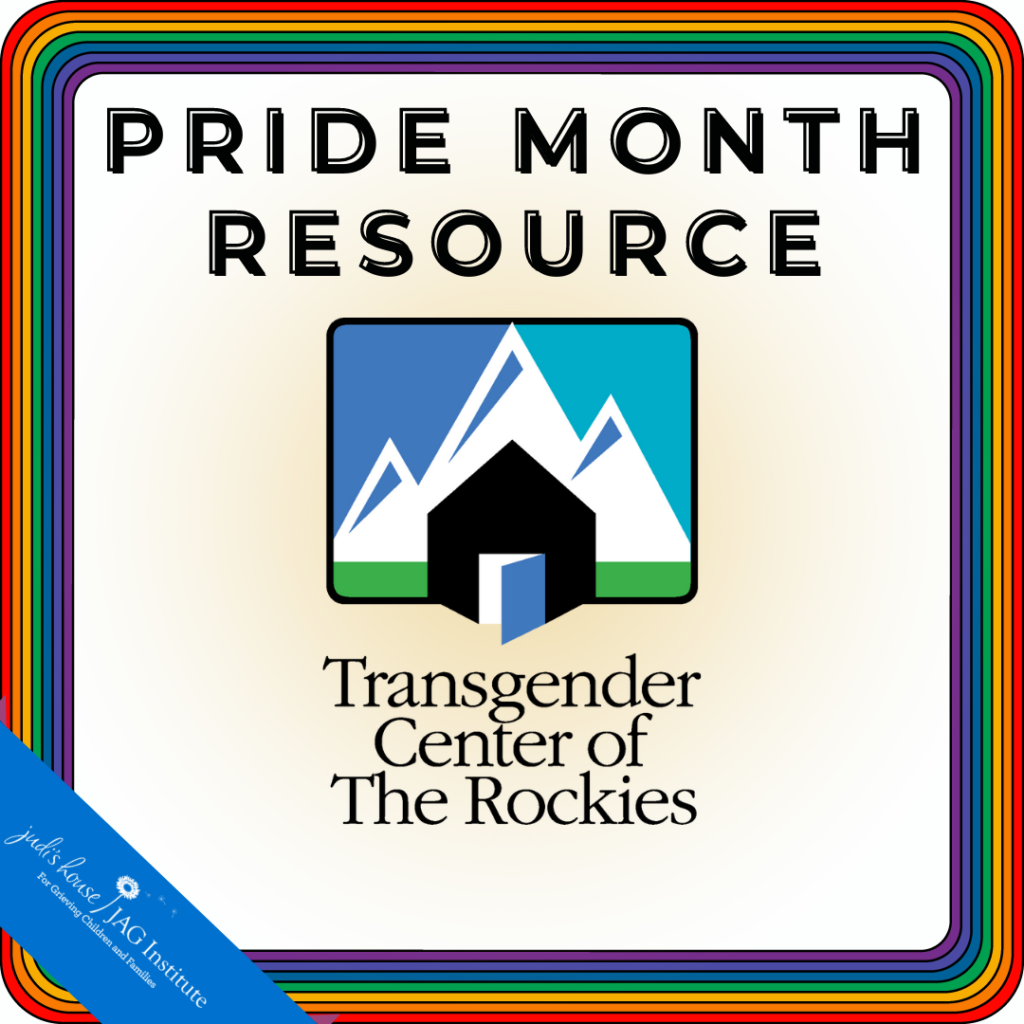Impact Stories
Pride Month Resource: Transgender Center of the Rockies
junio 9, 2023
April Owen discusses how grief care for transgender and non-binary folx takes on additional complexity.

In celebration of Pride month, we spoke with April Owen, the Director of Integrated Health at Mile High Behavioral Healthcare. She oversees the Transgender Center of the Rockies program, which is committed to offering trauma-informed gender-affirming individual and group counseling for transgender, non-binary, and gender-expansive individuals. April is a clinical psychologist, gender therapist, and, above all, passionate about improving the lives of transgender and gender-expansive individuals.
She spoke with us about how grief for transgender and nonbinary people can take on added complexity due to disenfranchisement, discrimination, and trauma. Read on for more insights about the process of ensuring that LGBTQIA+ youth are seen and heard throughout their grief journeys and empowered to live their most authentic lives.
What would you like our community to understand about the intersection of queer identity and grief?
Grief is pain and suffering related to the loss of a loved one, and the queer community knows a lot about this loss unfortunately. Queer people all too often have losses of or changes in relationships they have with those they care for that are due to queer people simply being who they are.
When queer people decide to “come out,” they face the sad reality that they may lose some relationships with friends, family, and coworkers or classmates in the process. In that respect, loss can also be paired with feelings of rejection and abandonment, making it all the more complicated and painful.
Queer people also experience loss and grief in the process of figuring themselves out and learning their true identities. Realizing who they are also gives rise to the realization that they are going to live a harder life where they won’t always be accepted and they may be harmed for who they are. They realize they will be “othered” and not considered normal and mainstream, and that in some ways the world isn’t for them. There is a loss of safety that may be profound, along with a loss of an uncomplicated and privileged life and future that has to be grieved.
What have you observed regarding unique aspects of grief and loss in the LGBTQIA+ community?
I’ve noticed that an attack on anyone who is LGBTQIA+ is often experienced as an attack on all of us. I have seen queer people come together in the wake of terrible tragedy and loss to grieve and mourn together, and to rise up strongly as a unit. It is a powerful and beautiful thing, although we shouldn’t have to go through the pain and suffering it takes to get there.
How can our community support LGBTQIA+ folx, especially LGBTQIA+ youth and young adults?
We can support people with our vote, number one. Voting for leaders who will be inclusive and affirming of policies that place LGBTQIA+ people on equal footing with their cisgender and heterosexual counterparts is so important. We can’t say we love gay or trans people and then go out and vote for people who will pass measures to oppress them and strip their rights away.
Secondly, people can be an ally. We need allies who take a stand and have hard conversations with others. We need allies who are willing to take action to advance the needs of the queer community. People can influence the businesses they work at, schools and camps their children go to, and spaces they commonly congregate in to make them more accepting and inclusive if they chose to put some time and energy into this.
Are there myths/unhelpful assumptions about grief in the LGBTQIA+ community that you would like to debunk/challenge?
I think people maybe think it is easier than it is to just “surround yourself with people who accept you.” I think they think that maybe that’s a simple, doable solution to the hate out there. It’s not easy to do that. There is so much you have to give up if you walk away from all of the people who don’t fully accept you for your gender identity or sexual orientation. Maybe for some it’s the loss of celebrating their favorite holiday with family, or for others going to a church that brought them a lot of comfort. It could be leaving a friend group that they’ve gone through a lot with, or walking away from a sports team that they’ve enjoyed. This is hard and it is complicated.
There are so many parts of life, and so many of them don’t include people that are 100% supportive of LGBTQIA+ people. For some queer people, the right choice might be to walk away from people who aren’t totally on board with their identity. For others, it may be worth staying in the relationship because the loss is too great. I’d like for the complexity and difficulty of these potential losses to be better understood, and for the tough choices people make about their own relationships to be respected. I’d also like people to know there are a lot of situations, places, and other reminders that can trigger grief for queer people.
Learn more about the important work the Transgender Center of the Rockies is doing, find transgender and gender expansive resources, and more on their website
